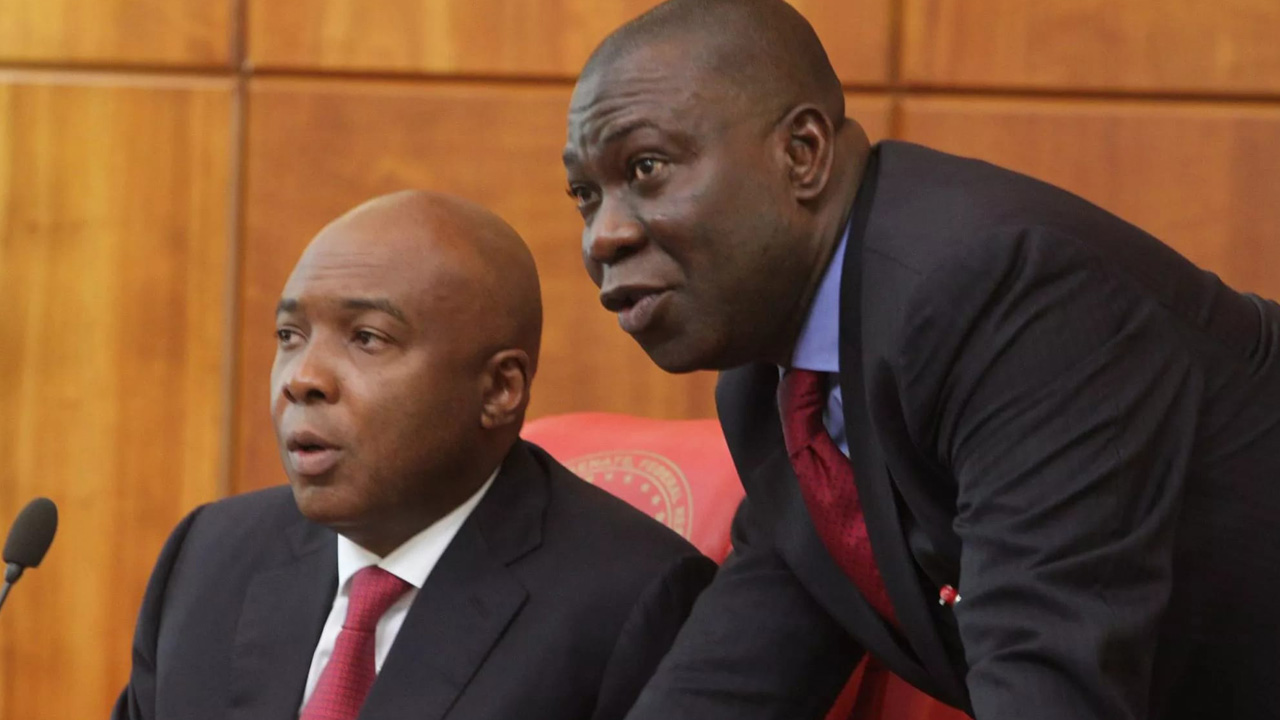The Federal High Court in Abuja has said the only valid way to remove Senate President Bukola Saraki and his deputy, Ike Ekweremadu from office is by the Senate resolutions backed by the votes of 73 senators constituting two-third majority of the legislators.
This was contained in the court’s ruling on a suit filed by the Civil Society Observatory for Constitutional and Legal Compliance, on August 29, 2018 following the siege by security agencies to the residences of Saraki and Ekweremadu to prevent them from attending plenary.
According to the petitioner, the siege was in connivance between some All Progressives Congress (APC) members of the Senate, the executive arm of government and security agencies to harass the Senate leaders, ultimately removing them from office.
But in his ruling on Monday, Justice John Tsoho, refused to grant any of the prayers sought by the plaintiff, including the one for an order of perpetual injunction stopping any plan to remove Saraki and Ekweremadu, except by resolution backed by two-third majority votes of the Senate.
The judge held that although the suit was not contested by any of the 110 respondents, the plaintiff failed to prove the case with cogent and credible evidence.
READ ALSO: Love doctor reveals 20 reasons men should quit their current relationships
“The plaintiff’s suit must succeed on the strength of its evidence and not on the weakness of the defence of the respondents,” the judge ruled.
“In law, newspaper reports are not generally admissible as the fact of what is recorded in them by virtue of section 37 of the Evidence Act,” the judge ruled.
“Applying the laws aforestated, it is crystal clear that in its bid to establish its case, the plaintiff has not shown any credible evidence in its affidavit to persuade this court in anyway,” Justice Tsoho said.
He added that “the burden” on the plaintiff “is quite heavy in view of the fact that declaratory relief is not granted even on admission by the respondents where the plaintiff fails to establish its claims”.
Striking out the suit, the judge held, “Accordingly, all the prayers sought cannot be granted for want of credible evidence.



Leave a Reply